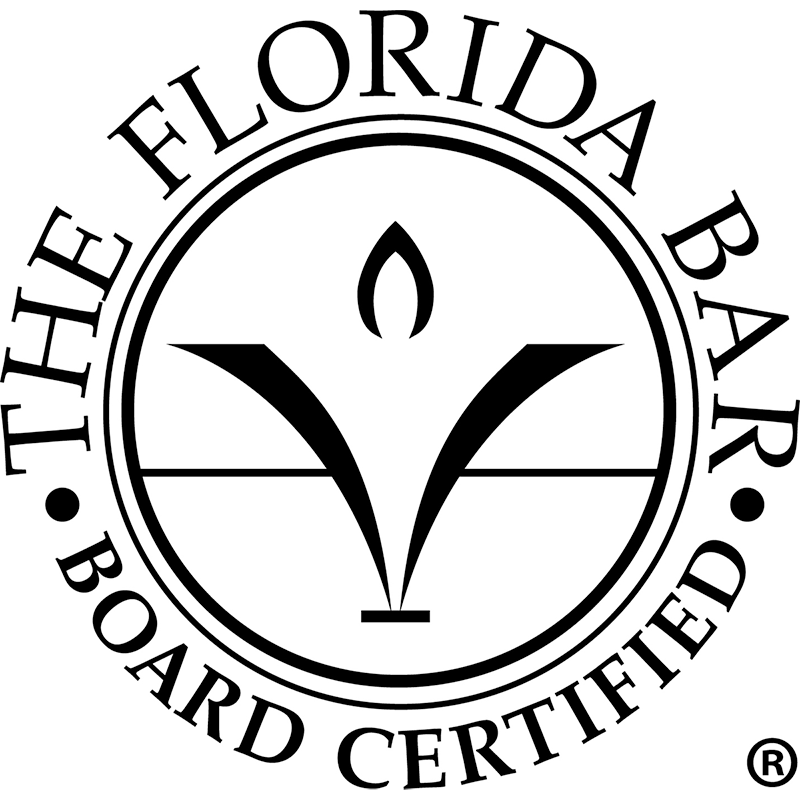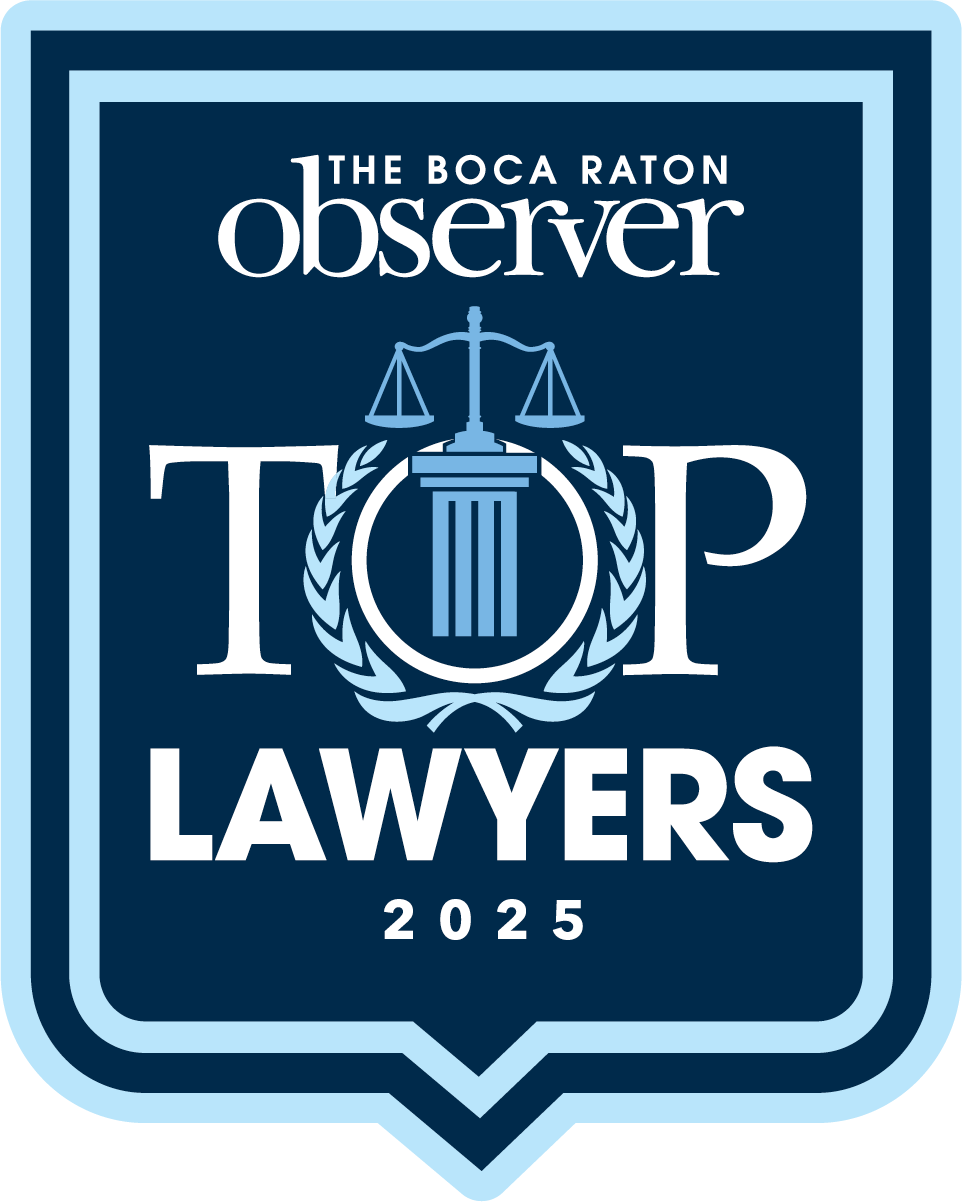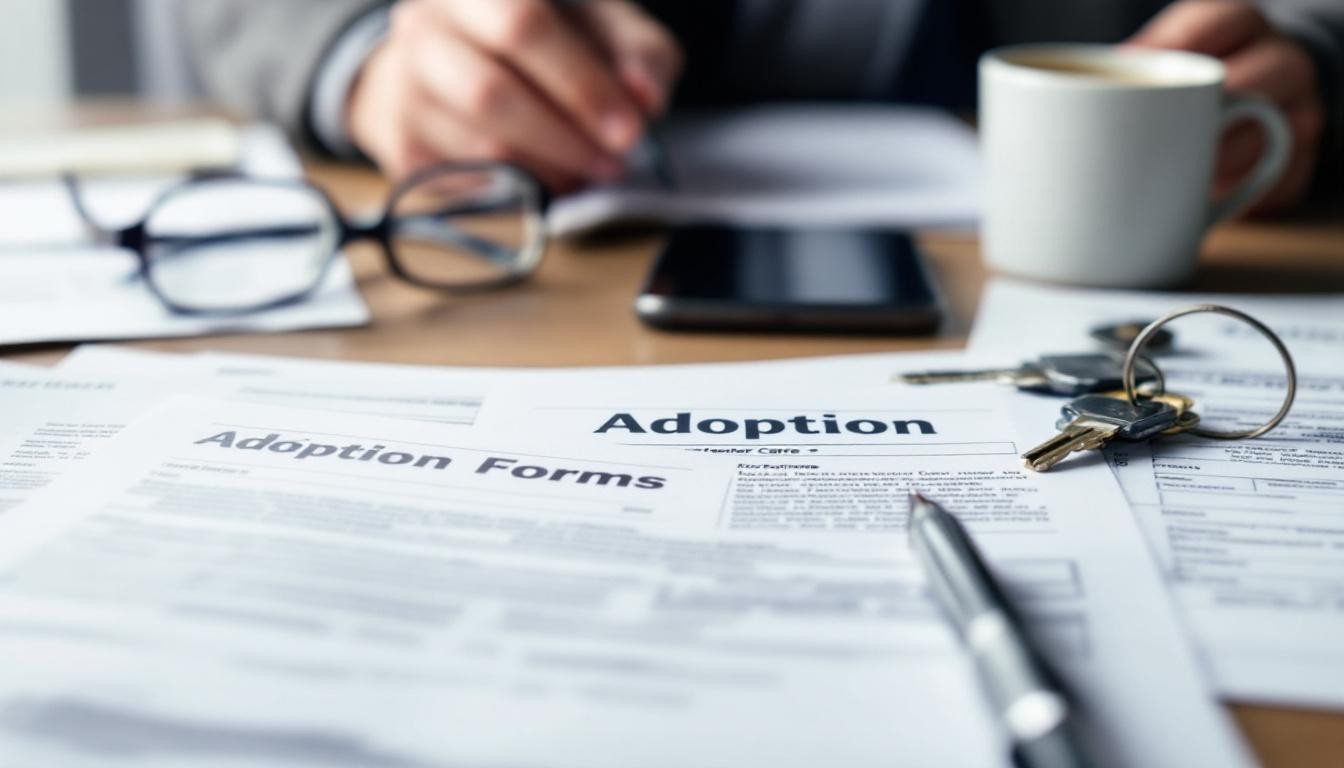
Many foster families in Florida develop deep bonds with children in their care and want to make the relationship permanent. The foster care to adoption process offers a pathway to transform temporary placements into forever families.
We at Juliana Gaita, P.A. guide families through this complex legal transition. Understanding the requirements and steps involved helps families make informed decisions about adoption.
What Legal Steps Transform Foster Care Into Adoption
Florida law requires foster parents to complete several mandatory steps before they adopt a child in their care. The termination of parental rights represents the most significant legal hurdle, as biological parents must either voluntarily surrender their rights or have them terminated through court proceedings. According to the Florida Department of Children and Families, approximately 19,000 children remain in foster care statewide, with around 500 who wait for permanent placement.
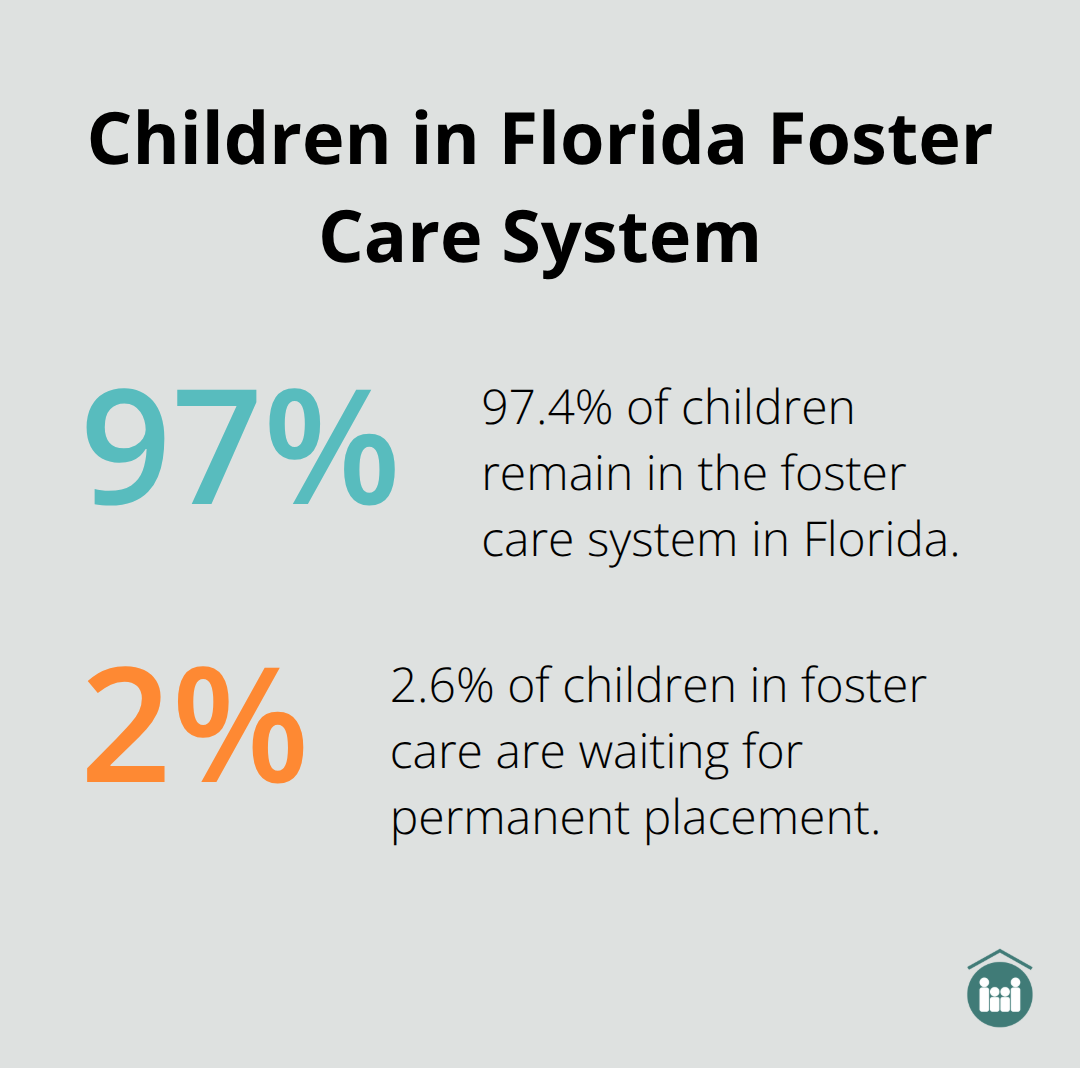
Home Study Updates and Documentation
Foster parents must update their home study to reflect their intent to adopt. This process involves additional background checks and interviews with adoption caseworkers. The court requires updated financial documentation, medical clearances, and character references before it approves the adoption petition. These requirements help courts assess the family’s readiness for permanent placement.
Timeline Requirements and Court Procedures
The conversion process typically spans six to eight months from initial petition to finalization. Foster parents must file an adoption petition within specific timeframes after parental rights termination occurs. Florida courts mandate a minimum wait period of 30 days after the family files before they schedule the final hearing.
The child must remain in the foster home continuously during this period to demonstrate placement stability. The court reviews all documentation, conducts final interviews, and may require additional home visits before it grants the adoption decree.
Legal Rights During the Transition
Foster parents hold temporary custody rights that change significantly once adoption proceedings begin. While they foster, parents cannot make major medical decisions without caseworker approval or relocate without court permission. Adoptive parents gain full parental authority, which includes the right to make all medical, educational, and religious decisions for their child.
They receive permanent custody that child welfare agencies cannot revoke. Florida law also grants adoptive parents access to adoption subsidies of $5,000 annually (paid at approximately $416.66 monthly) until the child reaches 18 years old. These financial benefits help offset the costs associated with permanent placement and provide ongoing support for families who adopt from foster care.
What Financial and Emotional Benefits Make Foster Care Adoption Worth It
Florida families who adopt from foster care receive substantial financial support that makes permanent placement financially viable. The state provides $5,000 in annual adoption assistance, distributed as $416.66 monthly payments until the child turns 18. Children adopted after age 16 may continue to receive benefits until 21 under specific circumstances. Florida also extends Medicaid coverage for adopted children and offers tuition waivers at public colleges until age 28 for youth who were in foster care, adopted, or in relative custody after May 5, 1997. These programs can save families tens of thousands of dollars over time.
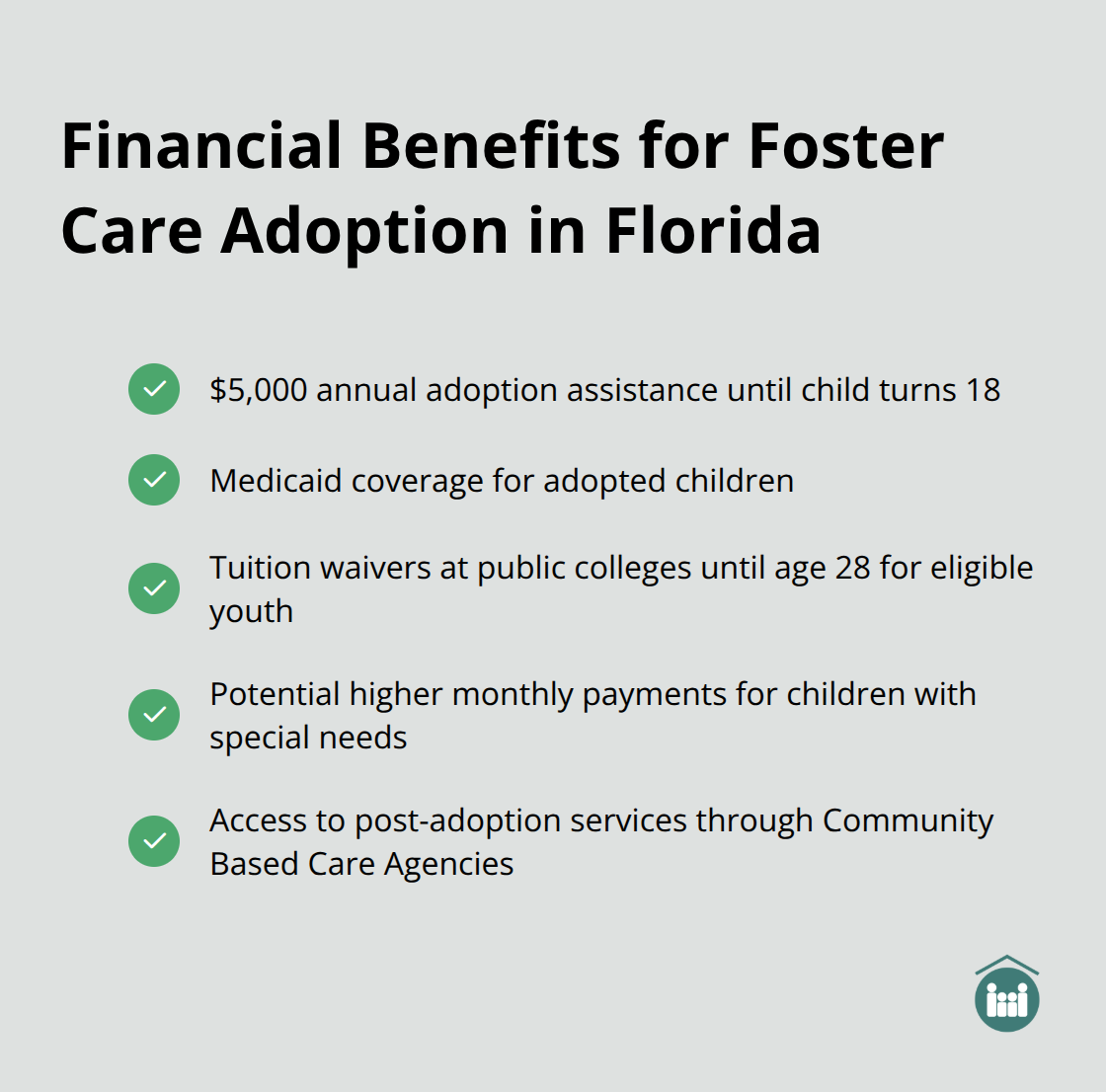
Financial Support Programs Beyond Basic Assistance
Children with special needs or those who previously received therapeutic foster care rates can negotiate higher monthly payments based on their specific requirements. The Florida Department of Children and Families also provides post-adoption services through Community Based Care Agencies, which include mental health support and educational assistance. Families can access local support groups through adoptflorida.org to connect with other adoptive parents and share resources.
How Children Benefit Emotionally From Permanent Placement
Children who transition from foster care to adoption gain the security of permanent family relationships. They no longer face the uncertainty of potential placement changes or the stress of temporary arrangements. Adopted children develop stronger attachment bonds when they know their family commitment is permanent. Studies show that children in stable adoptive homes demonstrate improved academic performance and better social development compared to those who remain in long-term foster care.
Common Transition Challenges Families Face
Children who move from foster care to adoption often experience a honeymoon phase followed by emotional regression as they process the permanency change. Foster children may struggle with attachment issues and mixed emotions about their biological families. Adoptive parents should maintain consistent routines, allow children to express feelings openly, and work closely with caseworkers during the transition period. Pre-adoptive visits help children become familiar with their new environment before finalization (memory books with photos and details from foster placement help children maintain positive connections to their past while they embrace their new family structure).
The legal requirements and documentation process requires careful attention to detail and proper legal guidance to avoid delays or complications. Families should research adoption services to understand the adoption process requirements.
What Legal Documentation Must You Complete for Foster Care Adoption
The termination of parental rights process requires biological parents to either voluntarily surrender their rights or face involuntary termination through court proceedings. Florida courts mandate clear and convincing evidence that parents cannot provide safe, stable homes before they terminate rights involuntarily. This process typically takes 3-6 months depending on whether parents contest the proceedings. Once parental rights end, foster parents have 30 days to file their adoption petition with the court. The Florida Department of Children and Families reports that approximately 50,193 children were adopted from foster care nationwide in fiscal year 2023 (representing a 5% decrease from the previous year).
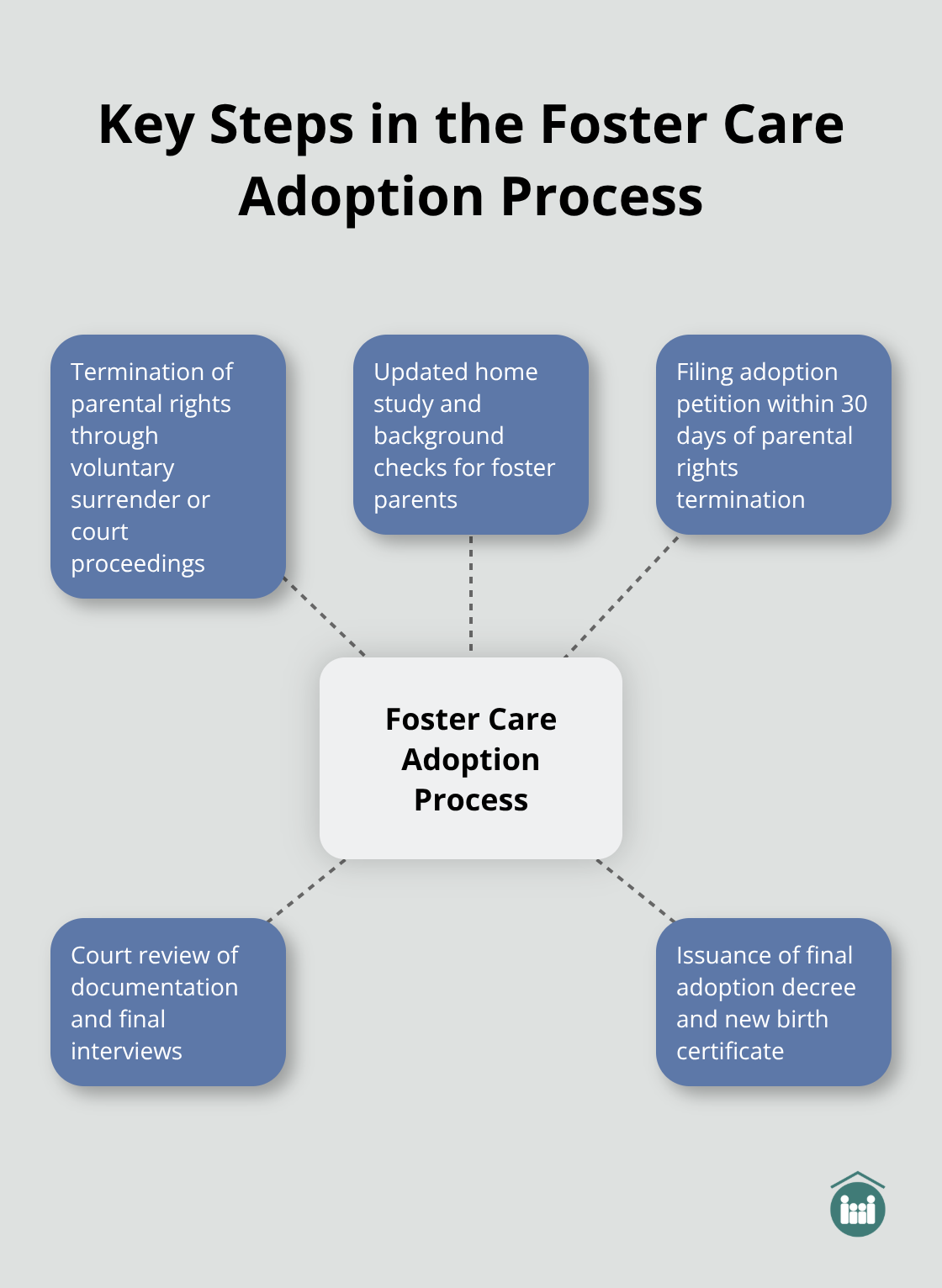
Court Approval Requirements and Home Study Updates
Foster families must complete an updated home study that addresses adoption readiness rather than temporary placement capability. This updated assessment requires new background checks, financial documentation that shows ability to support a child permanently, and interviews with adoption caseworkers who evaluate long-term family stability. Courts also require medical clearances for all household members and updated character references from employers, neighbors, and community members. The adoption petition must include detailed information about the child’s medical history, educational needs, and any special requirements they may have.
Parental Rights Termination Procedures
Courts review evidence that demonstrates biological parents cannot provide adequate care before they approve termination petitions. The state must prove by clear and convincing evidence that termination serves the child’s best interests. Parents receive notice of termination proceedings and have the right to legal representation throughout the process. Voluntary surrenders move more quickly than contested cases (which can extend the timeline by several months). The court issues a final order that legally severs all parental rights and responsibilities once termination completes.
Final Adoption Decree and Legal Protections
Florida courts schedule final adoption hearings approximately 6-8 months after families file their petitions, provided all documentation meets state requirements. The judge reviews all paperwork, interviews family members, and may order additional home visits before they grant the adoption decree. Once finalized, adoptive parents receive full legal authority over medical, educational, and religious decisions for their child. The court issues a new birth certificate that lists adoptive parents as legal parents, which provides permanent legal protection that child welfare agencies cannot revoke. Families also gain immediate access to Florida’s $5,000 annual adoption assistance program and Medicaid coverage that continues until the child reaches adulthood.
Final Thoughts
The foster care to adoption process in Florida offers families a meaningful path to permanency, but success requires careful preparation and legal guidance. Families must understand the financial commitments, emotional challenges, and timeline requirements before they begin this journey. The state’s $5,000 annual adoption assistance and Medicaid coverage provide substantial support, while tuition waivers can benefit children through age 28.
Legal requirements include parental rights termination, updated home studies, and court approvals that typically span six to eight months. Children may experience emotional adjustments during this transition (which makes family preparation and ongoing support essential for successful outcomes). Courts review all documentation carefully before they grant final adoption decrees.
We at Juliana Gaita, P.A. help families navigate the complex legal requirements throughout the adoption process. Our Boca Raton family law attorneys provide guidance on documentation, court procedures, and legal protections that make permanent placement possible. Families ready to move forward should contact qualified legal counsel to discuss their specific situation and begin the necessary paperwork for adoption.


